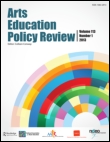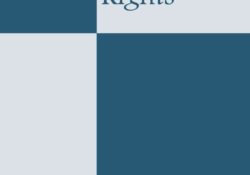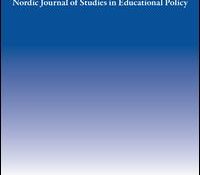eric.ed.gov har udgivet: The Math and Science Partnership (MSP) program at the National Science Foundation (NSF) is a major national research and development effort that supports innovative partnerships among institutions of higher education (IHEs), local K-12 school systems, and their supporting partners in order to improve K-12 student achievement in mathematics and science. Deep engagement of science, technology, engineering, and mathematics (STEM) disciplinary faculty is a hallmark of the MSP program. The program posits that disciplinary faculty hold the content knowledge that K-12 teachers need and that, if faculty are substantially involved, teachers’ disciplinary knowledge will be strengthened, resulting in improved student achievement. Drawing on a larger study that examines the effects of STEM faculty engagement in MSP, this article specifically looks at the tenure and promotion policies in a… Continue Reading →
Like this:
Like Loading...

tandfonline.com har udgivet en rapport under søgningen “Teacher Education Mathematics”: ABSTRACT ABSTRACT This paper reports the results of a document analysis study examining the policies, trends, and conceptions developed by the OECD in the last 15 years regarding the development and mainstreaming of globalised policies of migrant education. From the process of the analysis, three thematic categories emerged: (i) Socio-economic aspects of education: International testing and the performance gap; (ii) OECD’s recommendations on Migrant Education; and (iii) Influence mechanisms: Standardisation, benchmarking, and dissemination of suggestions. Findings are discussed in the light of the concepts of neoliberalism, standardisation and soft governance. It is argued that, despite the philology pertaining the promotion of neoliberalism and standardisation through the OECD’s policy suggestions, OECD’s soft governance champions for alternative models, philosophies and practices that may… Continue Reading →
Like this:
Like Loading...
tandfonline.com har udgivet en rapport under søgningen “Teacher Education Mathematics”: Abstract Formulae display:?Mathematical formulae have been encoded as MathML and are displayed in this HTML version using MathJax in order to improve their display. Uncheck the box to turn MathJax off. This feature requires Javascript. Click on a formula to zoom. Abstract It has been asserted that the test-based accountability of No Child Left Behind (NCLB) increased instruction in tested subject areas reading and math, leading to reductions in arts education. We tested this using two waves of data, before and after NCLB implementation, in a difference-in-differences design. The analyses indicated that the total teacher workforce increased substantially during this time period, while the percentage of reading and math educators remained constant, leading to an overall increase in the teacher… Continue Reading →
Like this:
Like Loading...
tandfonline.com har udgivet en rapport under søgningen “Teacher Education Mathematics”: ABSTRACT ABSTRACT Until recently, not only students of the titular nationalities (ethnicities) learned their native language but also ethnic Russians and other nationalities in some ethnic republics of Russia had to learn titular state languages of those republics. The political campaign in Russia against the compulsory teaching of state languages of republics started two years ago and culminated in the adoption of the amendment to the Russian education law on 3 August 2018. The law enacted some additional mechanisms to ensure the voluntary study of non-Russian languages. The law adoption signified the escalation of the conflict around linguistic rights and the compulsory study of state language. The problem is that the official discources typically overshadow the discourses of individuals and… Continue Reading →
Like this:
Like Loading...
tandfonline.com har udgivet en rapport under søgningen “Teacher Education Mathematics”: ABSTRACT ABSTRACT The definition for special education needs (SEN) and the policies for its assessment varies widely between countries. This paper aims to investigate similarities and differences through a Swedish-German comparative approach. Based on the distinction between categorical and relational perspectives as expressions of specific thought styles, 58 SEN assessment reports from both countries were qualitatively analysed. The results demonstrate the maintenance of the categorical perspective in terms of focusing on the pupil’s ‘failure’. This result is even more notable in the German examples than the Swedish cases. Exceptionally and in both countries, a relational perspective emerges, taking teaching and the social environment into account. In conclusion, we suggest a flexible SEN approach with a stronger emphasis on the relation… Continue Reading →
Like this:
Like Loading...
eric.ed.gov har udgivet: Massachusetts is one of a handful of states that is often recognized as a leader in public education, and for good reason. The Commonwealth consistently outperforms most states on national reading and math tests and often leads the pack in education innovations. “Starting Young: Massachusetts Birth-3rd Grade Policies that Support Children’s Literacy Development,” a report from the Early & Elementary Education Policy team at New America, examines state policies and local initiatives that aim to give children a strong start and offers recommendations to help ensure more students are moving up the learning staircase. Massachusetts has taken important steps, but to have a larger sustainable impact on children’s literacy development, more is needed. The report also provides a list of interviews and notes. Link til kilde
Like this:
Like Loading...
tandfonline.com har udgivet en rapport under søgningen “Teacher Education Mathematics”: ABSTRACT ABSTRACT National education policies often emerge from the global arena. These global policy norms hold the promise that reforms will produce similar education and development outcomes in different contexts. However, research on how and why global education reforms are practised ‘on the ground’ and with what effects is still scant. In this paper, we investigate how two global education agendas, namely Universal Primary Education (UPE) and Competency-Based Education (CBE), are enacted and re-contextualised in Uganda and Mexico. By drawing on data obtained from extensive field research in both countries, we explore how these global policies were translated into practice within their situated, professional, material and external contexts. Our research shows that in both cases the enactment of global policies… Continue Reading →
Like this:
Like Loading...
eric.ed.gov har udgivet: Following a high-quality early care and pre-K experience, the kindergarten-through-third-grade years set the foundation upon which future learning builds; and strengthening this continuum creates opportunities for later success. Key components of a quality experience in K-3 include school readiness and transitions, kindergarten requirements, educator quality, prevention, intervention and assessments, and social and emotional learning and mental health. Education Commission of the States researched the policies and regulations that guide these key components in all 50 states to provide this comprehensive resource and many others. The data in this document show at least 20 states require some form of math knowledge for pre-service teacher candidates. Five additional states only require professional development in math for in-service teachers, with three states having requirements for both teacher candidates and current… Continue Reading →
Like this:
Like Loading...




